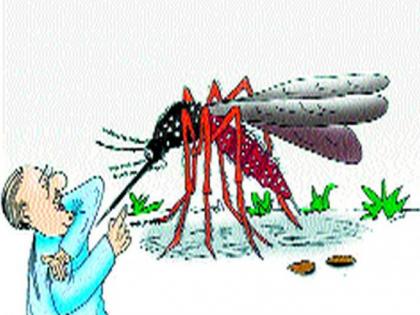Maharashtra: Chikungunya Cases Rise By 39%, Malaria, Dengue Under Control Ahead Of Monsoon
By Lokmat English Desk | Updated: May 5, 2025 14:22 IST2025-05-05T14:18:47+5:302025-05-05T14:22:15+5:30
Health officials in Maharashtra are noting a sharp increase in chikungunya cases around the state as the state gets ...

Maharashtra: Chikungunya Cases Rise By 39%, Malaria, Dengue Under Control Ahead Of Monsoon
Health officials in Maharashtra are noting a sharp increase in chikungunya cases around the state as the state gets ready for the rainy season. Officials have increased surveillance and preventive efforts in response to the spike in chikungunya, while dengue and malaria diseases are still mainly under control. Chikungunya infections in the state increased by 39% from 473 in 2024 to 658 this year (as of April 21), according to the most recent data from the National Centre for Vector Borne Disease Control (NCVBDC). According to a Hindustan Times report, dengue infections fell from 1,639 to 1,373 during the same time span, while malaria incidence decreased somewhat from 2,867 last year to 2,726 in 2025.
Crucially, as of now in 2025, no fatalities have been reported from any diseases caused by vectors such as Japanese encephalitis (JE), dengue, chikungunya, Zika, or malaria. Compared to last year, when four deaths from malaria had been reported by April, this is a significant improvement. “The absence of deaths shows that we're detecting and treating cases early," said a senior official from the state vector control authority, who spoke on current conditions.
However, the increase of chikungunya is a warning sign, the official continued. Increased surveillance and source reduction measures are crucial as the monsoon draws closer. As the rainy season draws near, the health authorities are advising the public to remove mosquito breeding grounds and exercise caution.
Also Read: Viral Video: Clash Breaks Out at Vile Parle as Woman Removes Pakistani Flag From Stairs
In Mumbai, the Pali Hill region saw a spike in chikungunya cases last week. At least 28 cases were detected from Dilip Kumar Lane alone. This prompted BMC's H-West ward to launch a detailed pest control inspection. BMC's pest control team inspected the outdoor areas of at least seven buildings and confirmed the presence of Aedes aegypti mosquitoes, the species known for transmitting dengue and chikungunya and breeding in stagnant fresh water. Notably, the team also found a higher number of Anopheles mosquitoes—commonly linked to malaria—although no malaria cases have been reported so far.
Residents have attributed the rise in cases to ongoing redevelopment work in the area, pointing to stagnant water and construction debris as potential breeding grounds for mosquitoes.Open in app